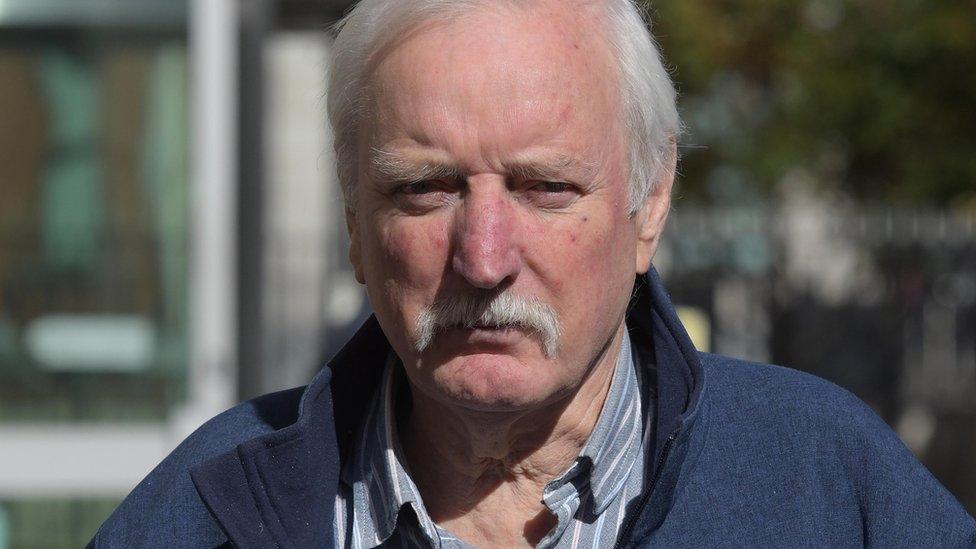Ivor Bell wins appeal over Gerry Adams' escape bid conviction
- Published

Ivor Bell challenged the legality of the verdict reached against him
Former IRA leader Ivor Bell has won his appeal against being found guilty of helping Gerry Adams in his attempt to break out of prison during the 1970s.
Last year, Mr Adams won his appeal to have two convictions for attempting to escape from prison in the 1973 and 1974 overturned.
The decision on Wednesday was based on a Supreme Court ruling that Mr Adams had been unlawfully detained.
Mr Adams was interned without trial.
This was a practice that was introduced in Northern Ireland amid spiralling violence in the early 1970s.
More than 1,900 people suspected of being members of paramilitary organisations were detained, but many were arrested based on flawed intelligence.
Mr Adams has consistently denied being a member of the IRA.
Supreme Court justices had held that the interim custody order (ICO) relating to Mr Adams was invalid because it had not been personally authorised by the Northern Ireland Secretary at the time, Willie Whitelaw.
Following that determination, Mr Bell challenged the legality of the verdict reached against him.
Long Kesh internment camp
Lord Justice Treacy said on Wednesday: "The appeal is allowed, we will give written reasons (at a later date)."
Mr Adams attempted to escape from the Maze Prison, also known as Long Kesh internment camp, in 1973 and 1974.
He was later sentenced to a total of four-and-a-half years in jail.
In 1975, Mr Bell, now 84, from Ramoan Gardens in west Belfast, received a five-year sentence for escaping from lawful custody and assisting in Mr Adams' escape bid.
Despite counter arguments that a minister could delegate responsibility for signing an ICO, the Court of Appeal backed Mr Bell's case.
Following the verdict, his solicitor, Peter Corrigan of Phoenix Law, said: "It is now well established that the British government were unlawfully detaining people without any lawful basis, and as such, any convictions arising out of that conduct cannot withstand legal scrutiny.
"We welcome the Court of Appeal's decision to exonerate our client, and quash his conviction on foot of the fresh evidence that has since come to light."